As ministers rush to reclaim control of British Steel amidst suspicions that its Chinese owner might be prepared to leave its blast furnaces idle, pressure is increasing to determine the extent of involvement.
Beijing
Its tendrils extend throughout the UK’s crucial national infrastructure.
Green power, red flags
China
is heavily engaged with Britain’s green power industry — providing nearly all of the country’s solar panels and backing investments in offshore wind initiatives.
Although these developments have propelled the government’s Net Zero objectives forward, they have also revealed Britain’s reliance on Chinese manufacturing.
MI5
is presently involved in an assessment of Beijing’s impact on national infrastructure. This involves examining our significant dependence on Chinese-manufactured devices, along with determining if the adoption of their tech might present a security risk down the line.
Chinese companies are responsible for 98 percent of the solar panels installed throughout Britain. Our investigation also revealed that these businesses have ties to approximately one-third of all offshore wind projects in the UK, which collectively amount to a value of £56 billion.
Alarmed, four of these firms have been listed on a
Pentagon
blacklist due to alleged ties with the Chinese military.
Meanwhile, China’s largest
wind turbine
The company Mingyang Smart Energy Group has recently received ‘priority status’ for establishing a manufacturing facility in Scotland. This comes even though Norway turned down their application earlier this year due to worries about national security.
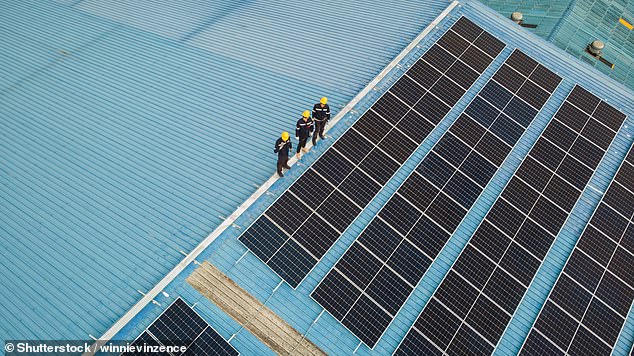
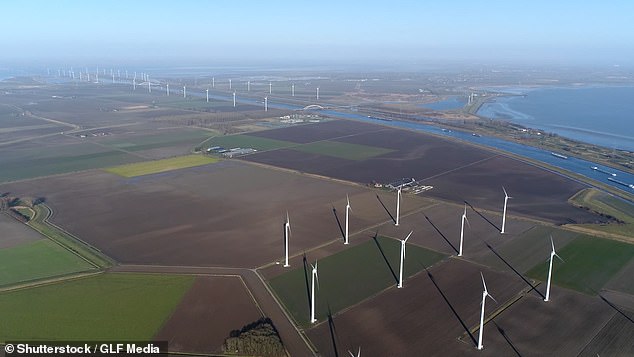
Nuclear fallout
The China General Nuclear Power Group (CGN) once held a significant position in the driver’s seat for the UK’s nuclear future, with a 33.5 percent share in the Hinkley Point C project.
However, the presence at the Somerset nuclear facility has significantly diminished due to funding being stopped in 2023, as tensions rose between London and Beijing.
China had been part of constructing the Sizewell C nuclear power station in Suffolk, yet in 2022, the government spent £679 million to acquire CGN’s share. Regardless of this development, CGN remains interested in advancing a potential nuclear facility at Bradwell-on-Sea in Essex.
Water pressure
The State-owned China Investment Corporation (CIC) owns an 8.7 percent share in Thames Water, which is the biggest water service provider in the UK.
The company provides water services and manages sewage for 15 million individuals, which constitutes one-fourth of England’s total population.
Utilities unrest
In 2016, CIC purchased a 10.5 percent share of National Grid’s natural gas distribution system.
At the same time, the conglomerate CK Hutchison, headquartered in Hong Kong under Chinese control, owns UK Power Networks, providing electricity to London, the Southeast, and Eastern England.
There are worries regarding smart meters produced by a firm associated with the Chinese government that have been deployed in numerous British households. Critics argue these devices should be removed due to fears that China might potentially disable electricity supply via the meters’ remote shutoff feature.
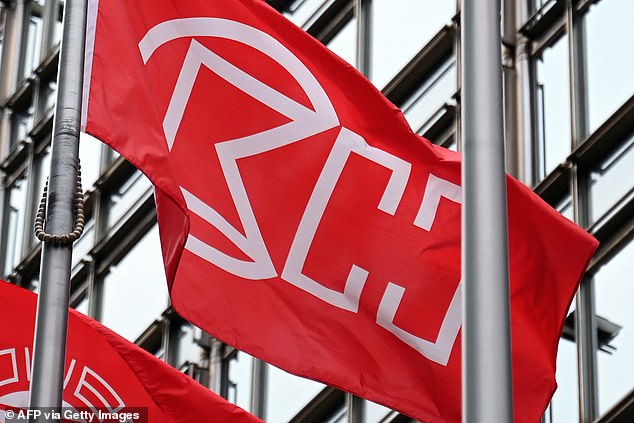
Telecommunications tangle
In 2005, Chinese technology behemoth Huawei significantly integrated itself into the UK’s communications network by providing cost-effective gear for emerging 5G systems.
Nonetheless, worries about possible espionage, Huawei’s connections to Beijing, and its founder Ren Zhengfei’s history as an officer in the People’s Liberation Army led the government to change its stance.
In 2020, a legislation was enacted prohibiting British mobile operators from acquiring additional Huawei 5G apparatus, mandating these companies to eliminate all of this equipment from their systems by 2027.
Heathrow hang-ups
(CIC) owns a significant 10 percent share in Heathrow Airport, providing Beijing with a robust presence in our global air transportation center.
Between 2017 and 2020, the state-controlled company received nearly £163 million in dividends from London Heathrow, which is the United Kingdom’s most active airport.
In 2012, it gained control of Heathrow Airport Holdings Limited — formerly recognized as BAA — which also manages several key UK airports such as Stansted, Southampton, Glasgow, and Aberdeen.
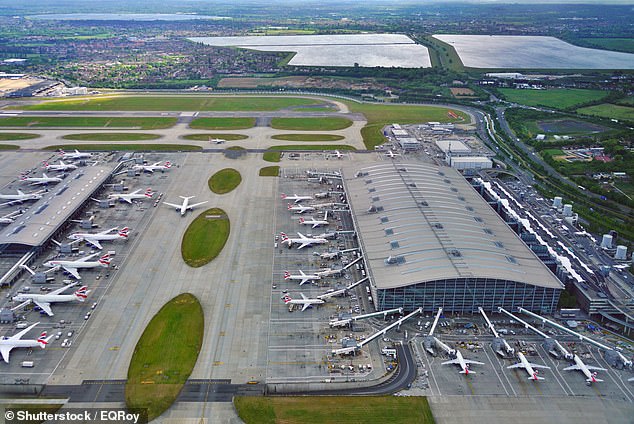
Real estate agents
The scale of Chinese investment in UK property is enormous. Via multiple channels, entities associated with Beijing hold ownership of over 250 crucial assets, which include strategic distribution centers pivotal for the movement of food and merchandise.
The investigation in 2023 uncovered that all these assets are ultimately controlled by CIC through opaque offshore locations like Luxembourg and the Isle of Man.
It is estimated that CIC has expended over £580 million acquiring these properties in the United Kingdom.
It similarly owns a controlling share in Logicor, a significant player in warehouses and logistics, catering to clients from well-known firms such as M&S.
The £1 billion Leadenhall Building, which stands out as one of London’s tallest structures and has earned the nickname “the Cheesegrater,” is under ownership of a wealthy Chinese business tycoon. Additionally, the iconic Walkie Talkie building located at 20 Fenchurch Street in the City of London was acquired by Chinese investors for £1.3 billion, marking this transaction as one of the biggest purchases of British property by Chinese entities.
University challenged
In recent years, Chinese organizations have invested almost £50 million in the United Kingdom’s leading universities.
In the timeframe from 2020 to 2024, Oxford University secured £24 million, whereas Cambridge garnered between £12 million and £19 million during the same duration. This funding encompassed contributions from Huawei and its affiliates following their prohibition from participating in Britain’s telecoms framework starting in 2020.
Over the past five years, the number of Chinese students studying in the UK has increased by about 30%, with each individual contributing tuition fees that can be as high as three times more than those paid by UK students.
Confucius Institutes, which are educational centers supported by the Chinese government, have proliferated at numerous UK universities, raising apprehensions.
Experts have cautioned that the educational sector in the UK is progressively being seen as an objective for Beijing due to its aim of expanding international impact and suppressing dissent.
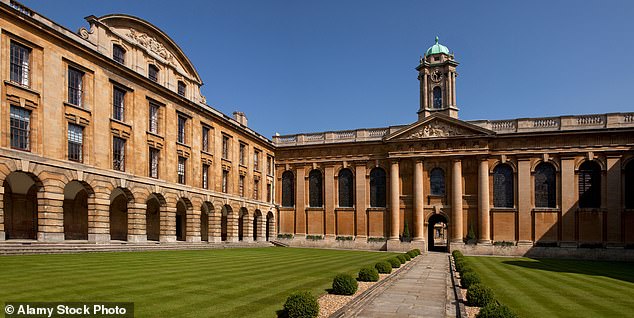
Pints to pizza
Chinese companies have discreetly taken control of some beloved British institutions, such as Greene King, one of the UK’s biggest pub operators, which was purchased by HK-based CK Asset Holdings in 2019.
Additional acquisitions encompass Wolverhampton Wanderers FC, under the ownership of the Chinese corporate group Fosun International. Meanwhile, the well-known high-street dining establishment Pizza Express has come into possession of the Chinese private equity firm Hony Capital.
Slippery oil deals
The oil refinery in Grangemouth, Scotland, partially owned by PetroChina, is scheduled for closure later this year.
This shutdown will result in the domestic processing of North Sea crude being discontinued, leading to the oil being exported overseas before being repurchased and brought back into the United Kingdom.
The refinery serves as Scotland’s sole facility of its kind, however, the owners plan to convert it into an import terminal instead.
Experts caution that the shutdown, leading to approximately 400 job losses, might compromise national energy security, potentially granting Beijing a strategic edge in the jet fuel market.
The union Unite, representing numerous oil and gas employees, has cautioned that shutting down operations could lead to increased dependence on imported fuel products from overseas.
In 2011, a Chinese firm purchased a fifty percent share in Grangemouth from the Ineos Group owned by British entrepreneur Sir Jim Ratcliffe. The Ineos Group had taken over the site back in 2005 after acquiring it from BP.
Read more